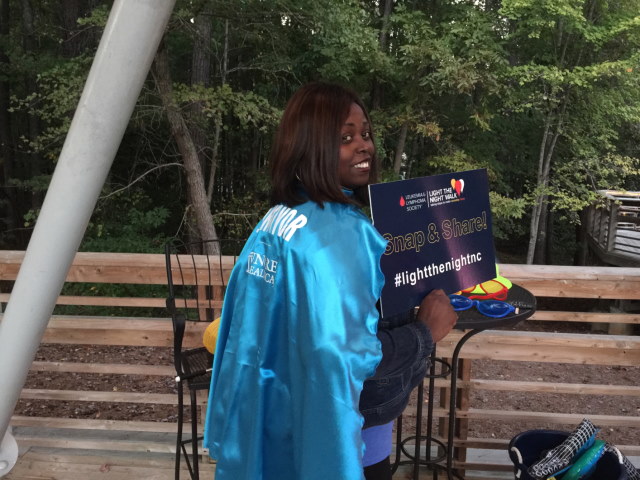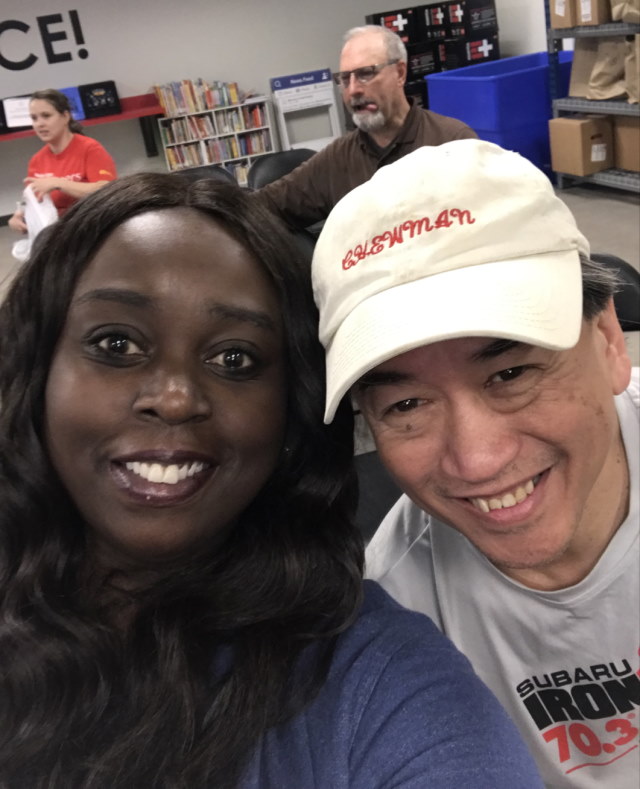2021-December-16
Did you know? You can share this story using the social media icons on the upper left. Use the hashtag #WeAreCisco. You can also rate or comment on the story below.
Why I Gave up My $100 Lottery Ticket
BY MELISSA HOLDER · GLOBAL CSS ENGINE LEAD · UNITED STATES
WITH HELEN GALL
5 minute read • 7 minute listen

It was a normal day for me. After 15 Webex calls, I needed to get out of the house for a while.
I drove to the nearest gas station. I pulled up in my nice car, sporting my Cisco gear, yoga pants, and Crocs. I stepped inside with only one goal — to waste money on scratch-off lottery tickets, a habit I picked up during the last year. No true interest. Just boredom.
Sucking money out of my account because I’d convinced myself, “YOLO.” (You only live once.)
What I didn’t expect that day was to walk out with a new perspective on life.
A lucky encounter
I grabbed two cards, and as I paid, I struck up a conversation with the attendant. He began to tell me about his journey from India to the United States. He discussed his education and explained he has an MBA and how accomplished he was in India.
Even with his education he was unable to find a job where he could put his degree to use.
He told me his wife was already in the U.S., pregnant with their third child, so he made the transition from India.
But soon after arriving, he had not managed to find work and struggled to pay bills. He could barely afford to buy diapers. He remarked that he hadn’t enough money to buy himself clothes. He washed what he wore daily for the following day.
I looked down at my tickets.
Here I was standing in front of this intelligent man, wasting money, and he could barely afford to support his family. I was embarrassed, but at this point it was too late to return them. I left the gas station feeling entitled, selfish, and ashamed.
I felt ashamed because struggle and I were old friends. I knew better. Unfortunately, I’d forgotten about struggle because it was replaced by new friends, “YOLO,” “I’m living my best life,” and my BFF, “Life is too short.”
I’ve come to realize that “life is too short” to forget about others all over the world who are struggling. I gave up my scratch-off habit that day.

811 million people go to bed hungry
Imagine for a moment the hundreds of millions of people who lack the necessity of a meal.
In the U.S. alone, 12 million out of 38 million are children. 12 million children who by all accounts are our future are simply… hungry.
In my own home of Atlanta, there are nearly 377 thousand children who are hungry. Children whose only concern should be deciding which action figure will battle Godzilla, or which outfit Barbie should wear. But instead they are distressed about their next meal.
Honestly, I’d never considered researching the numbers until the pandemic hit. Have you ever considered researching the food scarcity numbers in your community?
Chances are, if you’re like me, the pandemic has forced you to reflect on many aspects of life: What’s important. What’s not. Embracing family, friendships, actually checking off your bucket list (when normalcy rears her head), and mental health.
Imagine the mental state of those without food
The reality is mental health and the pandemic are aligned.
The pandemic has shown me that mental health is a lifestyle. A must have, not just an afterthought. But who has time to think about self care when food isn’t an option?
I have always been one who serves the community and gives back. I do this because I know what it means to suffer. However, the pandemic has forced me to think about giving back differently.
The pandemic isn’t just about what we see in the media. It’s about what we don’t see.
It’s about unemployment, homelessness, self-doubt, and mental health. It’s about the domino effects, the interlockings of faith and regret, and, undoubtedly, it’s about the forgotten.
This period has forced me to think about the forgotten. Let’s face it, by grace, all of us who are employed here at this fantastic company don’t have to consider the adverse effects of hunger.
The hard reality is that hunger is a thing. Until the pandemic, I didn’t conceptualize that some children’s only opportunity to eat was at school. Schools were closed.
I didn’t rationalize that some adults relied on restaurant leftovers to feed their families. Restaurants were closed. In an instant, these resources were omitted. Can you imagine?
How can you help?
Back to the gas station: I won $100 from one of my tickets that evening. I returned with a note for my new friend. I thanked him for not only sharing his story but for grounding me. I included links to free Cisco Networking Academy classes and the $100 that I’d won. It was free money to me, but it was everything to him.
It was just one small way to help.
It’s no secret that Cisco believes in giving back. Employees participate in great campaigns like the recent Covenant House Sleep Out. Cisco alone has pledged $50 million over five years to help eradicate homelessness.
We have tools like Bright Funds where we can donate to a plethora of organizations and get those donations matched. Better yet, we’re given 10 days a year to volunteer as part of our Time2Give program.
How many of you have taken advantage of Time2Give? If Cisco graciously affords us the opportunity to easily give back, why is it so easy to forget?
The holidays are upon us. People need us now more than ever. Give your time, your money, or your support.
Related Links
Connect everything. Innovate everywhere. Benefit everyone.
Share your thoughts!
Log in to rate and commentShare your thoughts on the story here!